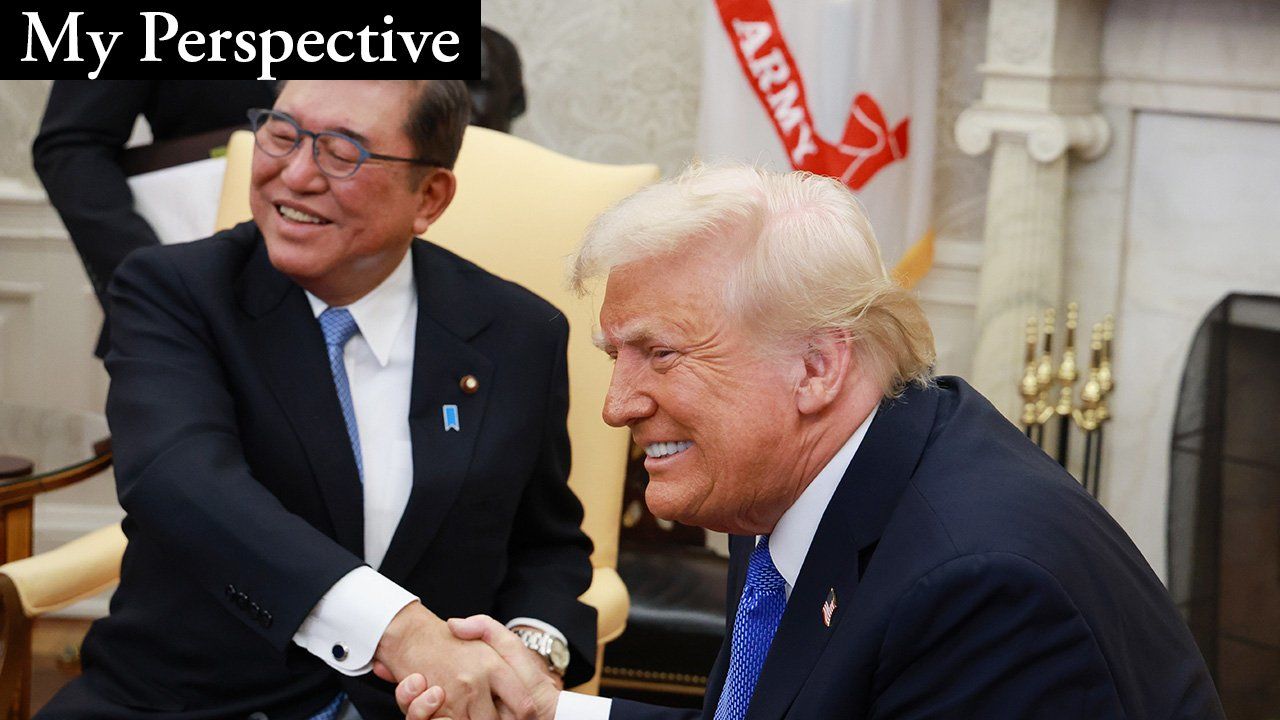
What Ideals Underwrite the US-Japan Alliance Today?
Politics- English
- 日本語
- 简体字
- 繁體字
- Français
- Español
- العربية
- Русский
Dealing with a Different America
Whether viewed through a security or economic lens, Prime Minister Ishiba Shigeru’s recent visit to the United States successfully steadied the US-Japan alliance—for now. The absence of any surprising or confrontational remarks by President Donald Trump during the leaders’ February 7 summit meeting suggests that the American leader wishes to avoid undermining US-Japan relations.
Other Trump administration policies, however, suggest major breaks from past practice. Domestically, President Trump pardoned the rioters involved in the January 6, 2021, attack on the capitol, has banned transgender people from participating in “women’s” athletics and sports, and is attempting to end birthright citizenship so that children born in the United States to illegal immigrants cannot acquire American citizenship. Internationally, President Trump also announced America’s withdrawal from the World Health Organization and the Paris Climate Agreement and has unilaterally imposed tariffs on a wide range of countries, including close partners and neighbors. Collectively, these policies signal major changes in American politics.
Why is it a major shift? Traditionally, the United States has been a country that stands by and is guided by ideals such as religious freedom, democracy, federalism, separation of powers and other political commitments. These civic ideals have been essential political attributes of American identity and citizenship, superseding religious, racial, linguistic, or cultural differences. (Japan, by comparison, has traditionally emphasized cultural and historical traditions in its national identity and citizenship is based on whether someone has Japanese ancestry, speaks Japanese, and is imbued with these traditions.)
These civic principles have also guided America’s behavior as a member of the international community. The US government has traditionally expressed solidarity with countries who share American commitments, while proactively resisting nations hostile toward its stated values. Postwar Japan, on the other hand, has generally sought to preserve its own traditions, adhering to the cause of pacifism while also stressing its identity as a nation that shares values with Western democracies like the United States.
However, the Trump administration has rejected the traditional “identity politics” focused on race and gender that has strongly colored American politics. Instead, President Trump’s political philosophy tends to value loyalty to the American nation and strength arising from the American pioneering spirit. It is likely that from now on, patriotism and a fighting spirit, which are antithetical to pacifism, will be increasingly emphasized over notions of diversity and tolerance.
Therefore, despite its desire to strengthen the foundations of the US-Japan alliance, it is becoming increasingly difficult for a pacifist and tradition-focused Japan to really claim it shares the same ideals as the United States. While an alliance requires strategic alignment, solidarity based on shared ideals and principles between peoples are also part of the bedrock of a functioning alliance relationship.
Time for Reconsideration?
As the United States itself looks to be abandoning its founding principles by prioritizing its immediate national interests, can Japan realistically think about strengthening the alliance based on a truly felt sense of trust in its partner? Aside from a commitment to a military build-up, what kind of a shared worldview connects our two countries?
The issue of shared values has wider implications, too. Solidarity between the United States and Japan based on shared ideals will be of little strategic and global significance if Japan’s alliance partner takes a hostile attitude to European nations who also share those same values.
Further complicating this situation is that Europe is also witnessing a rebellion against globalism and its own integration project in the form of the European Union. This has led to a marked shift toward national self-centeredness and right-wing politics that threatens Europe’s sense of unity.
Given these current world trends, I believe Japan needs to once again engage in an urgent and serious discussion of the fundamental ideational basis of the US-Japan alliance, along with its own commitment to pacifism.
(Originally published in Japanese. Banner photo: US President Donald Trump [right] and Japanese Prime Minister Ishiba Shigeru shake hands after meeting at the White House on February 7, 2025. © Jiji.)

